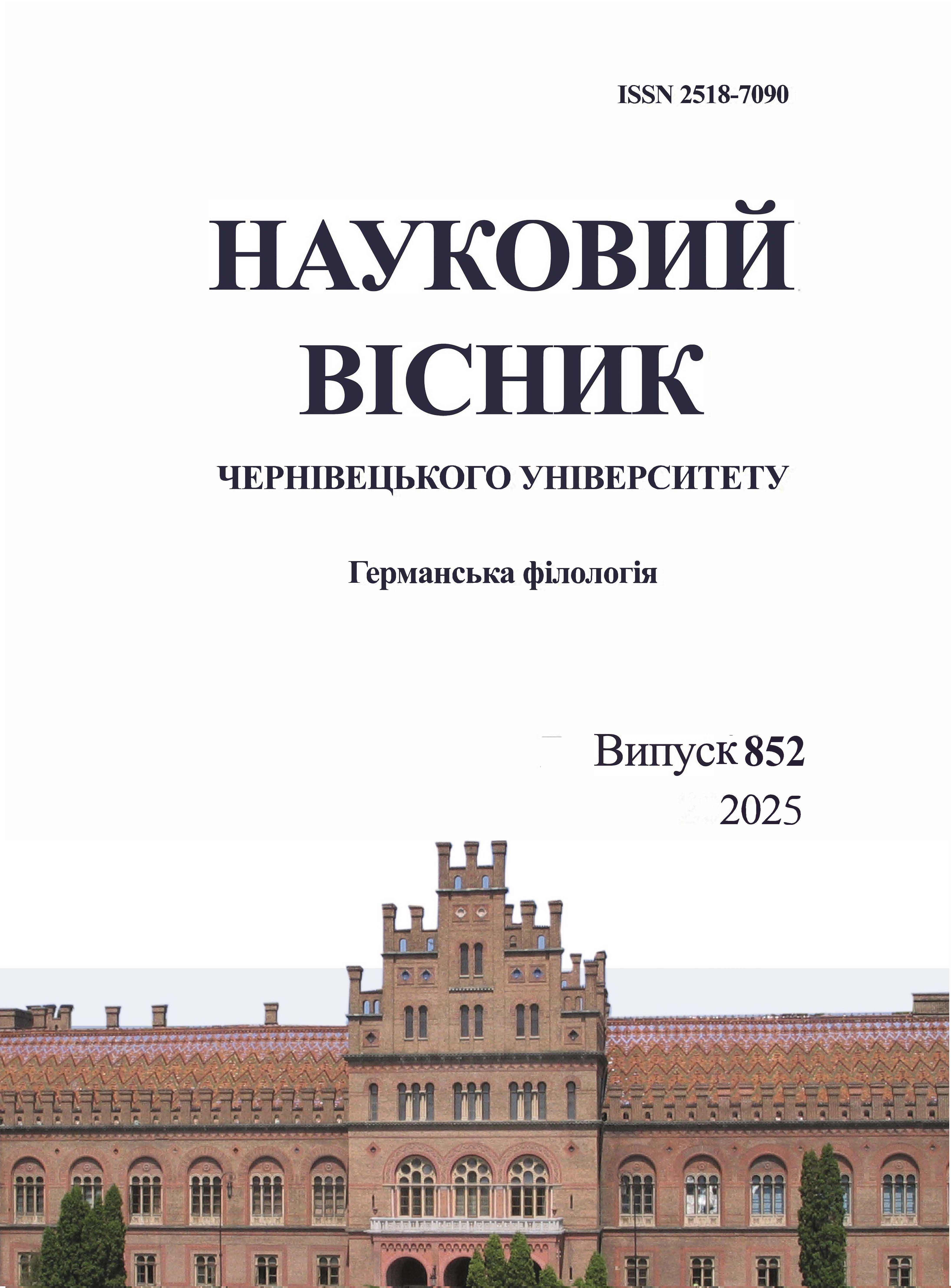PROJEKTORIENTIERTE LEHRERAUSBILDUNG MIT DLL: ERFAHRUNGEN UND REFLEXIONEN
DOI:
https://doi.org/10.31861/gph2025.852.44-52Keywords:
continuing education, the DLL concept, practical exploration project (PEP), European profiling grid, experience-oriented learning, artificial intelligenceAbstract
The focus of this article is on understanding the concept of project-based teacher education within the innovative Deutsch Lehren Lernen (DLL) program launched by the Goethe-Institut. The program is distinguished by the fact that it organically combines practice-oriented professional development with modern, scientifically based didactic approaches.
The research basis for this paper was based on my own professional observations, informal conversations with fellow teachers, as well as open questions regarding the format, content, and feasibility of practical intelligence projects (PIPs), which are an integral component of the DLL program.
The article discusses those aspects of the PIP that, in the authors' opinion, require professional discussion, modernization, or improvement. At the same time, alternative ways of developing professional skills in the field of teaching German as a foreign language are proposed, taking into account the individual context of each teacher.
Particular attention is paid to the hypothesis of the potential of the CPD as a source of a large corpus of big-data that can be used to create curricula and tools, in particular, based on artificial intelligence.
A comprehensive analysis of the benefits and challenges associated with the project component of the DLL program makes it possible to outline potential areas for its further development and increase the effectiveness of professional internships for teachers.
Downloads
References
Shpihelhalter D. Mystetstvo statystyky: Pryiniattia arhumentovanykh rishen na pidstavi danykh; Per. z anhl. N. Lavskoi. K. : KM-BUKS, 2025. 384 s.
Altmann G. Statistik für Linguisten. Trier : Wissenschaftlicher Verlag, 1995. 242 S.
Best K.-H. Linguistik in Kürze. Göttingen, 2005. 154 S.
DLL 01: Lehrkompetenz und Unterrichtsgestaltung / M. Schart, M. Legutke. München : Klett-Langenscheidt, 2012. 199 S.
DLL 04: Aufgaben, Übungen, Interaktion / H. Funk, Chr. Kuhn, D. Skiba, D. Spaniel-Weise, R. E. Wicke, J. Ricart Brede. München : Klett-Langenscheidt, 2014. 184 S.
Drösser Chr. Was macht KI mit unserer Sprache? Perspektiven auf ChatGPT und Co. Chr. Drösser. – Berlin : Dudenverlag, 2024. 92 S.
Kantemir S.O. Die statistische Analyse des semantischen Feldes der Farb¬bezeichnungen im Deutschen / S.O. Kantemir, V.V. Levickij. Glottometrics. № 11. Lüdenscheid : RAM-Verlag, 2005. S. 64–97.
Karagiannakis E. Das Europäische Profilraster für Sprachlehrende – Motivation statt Frustration! Fremdsprache Deutsch. Heft 57. Berlin : Schmidt-Verlag, 2017. S. 45–49.
Kohle H. Was ist eigentlich Crowdsourcing? URL: https://www.youtube.com/watch?v =hY01 wHvH-WA
Mateva G., Vitanova A., Tashevska S. Europäisches Profilraster für Studierende. Handbuch für Nutzerinnen und Nutzer. EPG, 2011-2013. 18 S. URL: https://egrid.epg-project.eu/sites/default/files/files/EGRID-Guide-DE-web.pdf
Nitschke P. Trainings planen und gestalten. Professionelle Konzepte entwickeln, Inhalte kreativ visualisieren, Lernziele wirksam umsetzen. 4. Aufl. Bonn : ManagerSeminare-Verlag, 2016. 287 S.
North B., Mateva G., Rossner R. Das Europäisches Profilraster für Studierende. EAQUALS 2013. 40 S. URL: https://www.goethe.de/resources/files/pdf22/EPR_Verffentlichung_Deutsch.pdf
Saunders, C., Werner, T., Helmbold, B. & Schart, M. Praxiserkundungen als Ansatz für Forschendes Lernen im Bereich Deutsch als Fremd- und Zweitsprache. Zeitschrift für Hochschulentwicklung. № 15 (2). 2020. S. 101–124. DOI: https://doi.org/10.3217/zfhe-15-02/0
Voerkel, P., & Krzelj, K. Konzeption und Wirkung von Aus- und Fortbildungsprogrammen im Bereich Deutsch als Fremdsprache am Beispiel von Deutsch Lehren Lernen: Einführung in den Themenschwerpunkt. KONTEXTE: Internationales Journal Zur Professionalisierung in Deutsch Als Fremdsprache. № 1(2). 2023. S. 1–5. DOI: https://doi.org/10.24403/jp.1335307






